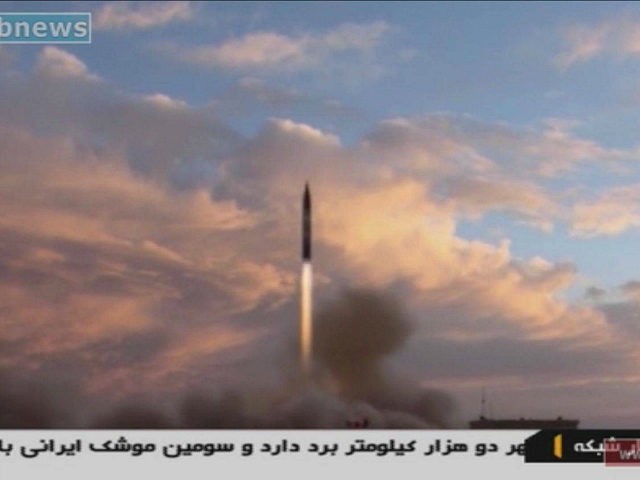WASHINGTON, D.C. — U.S. Department of Homeland Security (DHS) efforts to combat chemical, biological, radiological, and nuclear (CBRN) threats facing Americans are “inadequate,” the department’s acting secretary told lawmakers Wednesday.
In written testimony prepared for a Senate panel hearing on threats to the American homeland, Acting DHS Secretary Elaine Duke revealed, “The Department’s current approach to addressing CBRN matters is inadequate. For nearly a decade, DHS has looked at reorganizing internally to better counter these dangers.”
DHS is reportedly taking action to address its shortcomings in dealing with CBRN issues.
“I want to emphasize that we are overhauling homeland security to cope with changes in the threat landscape,” testified Secretary Duke.
“As we continue this overhaul, it is clear that the authorities, structures, and accountability measures developed for DHS over 15 years ago are no longer sufficient,” she added.
Choosing not to elaborate further in a public setting, Secretary Duke only said that terrorist groups are showing a “renewed” interest in weapons of mass destruction (WMDs), telling Senators:
Our intelligence professionals have seen renewed terrorist interest in WMD and are aware of concerning developments on these issues, which can be discussed further in an appropriate setting. That is one reason why the Department is eager to establish a focal point for our work to protect Americans against chemical, biological, radiological, and nuclear (CBRN) threats.
On top of trafficking drugs, violence, and dangerous goods across the U.S. borders, transnational criminal organizations (TCOs) in Latin America could potentially lend assistance to terrorists in their quest to acquire WMDs, indicated the DHS secretary.
Echoing the U.S. military, she added that TCOs could also facilitate the entry of terrorism-linked illegal aliens into the United States.
Secretary Duke also told lawmakers:
TCOs pose a persistent national security threat to the United States. They provide a potential means for transferring weapons of mass destruction (WMD) to terrorists or for facilitating terrorists’ entry into the United States. We have already seen migrants with terror connections travel from conflict zones into our Hemisphere, and we are concerned that criminal organizations might assist them in crossing our borders. The shifting travel patterns of these foreign nationals has been cause for concern.
The Islamic State (ISIS/ISIL), deemed the “primary” threat against the United States by the witnesses during the hearing, has reportedly shown an interest in WMDs.
In a 2015 op-ed article published in its propaganda magazine Dabiq, ISIS indicated that it could smuggle a nuclear weapon into the U.S. through Mexico using existing trafficking networks in Latin America.
During the hearing held by the Senate Homeland Security and Government Affairs Committee, Duke testified alongside FBI Director Christopher Wray and the leader of the U.S. National Counterterrorism Center (NCTC), a component of the Office of the Director of National Intelligence (ODNI), Nicholas Rasmussen.
While the DHS has deemed its efforts to combat the chemical, biological, radiological, and nuclear problems afflicting the United States as “inadequate,” Wray acknowledged in his prepared remarks:
The FBI, along with its U.S. Government partners, is committed to countering the Weapons of Mass Destruction (“WMD”) threat (e.g., chemical, biological, radiological, nuclear) and preventing terrorist groups and lone offenders from acquiring these materials either domestically or internationally.
Domestically, the FBI’s counter-WMD threat program, in collaboration with our U.S. Government partners, prepares for and responds to WMD threats (e.g., investigate, detect, search, locate, diagnostics, stabilization, and render safe WMD threats). Internationally, the FBI, in cooperation with our U.S. partners, provides investigative and technical assistance as well as capacity-building programs to enhance our foreign partners’ ability to detect, investigate, and prosecute WMD threats.
Secretary Duke told lawmakers that DHS hopes to work with lawmakers to improve America’s defenses against chemical, biological, radiological, and nuclear threats.
DHS intends to create “a focal point for such activities like most other national security departments and agencies, improving strategic direction, instituting business management best practices across the CBRN space, boosting morale, helping with leadership recruitment and retention, and over time reducing waste, overlap, and duplication,” she said.
“Our leadership team is breaking down legacy bureaucratic barriers to make DHS operate more efficiently and effectively to counter threats to our nation. We are ramping up unity of effort within the department and tight collaboration with law enforcement, the intelligence community, and our allies,” she continued later. “And we are looking at ways to further integrate intelligence and operations so that our actions are driven by timely information and that we respond quickly to new dangers.”
The DHS secretary and ODNI director warned that the magnitude of the terrorist threats facing the United States may “exceed” the 9/11 period.

COMMENTS
Please let us know if you're having issues with commenting.